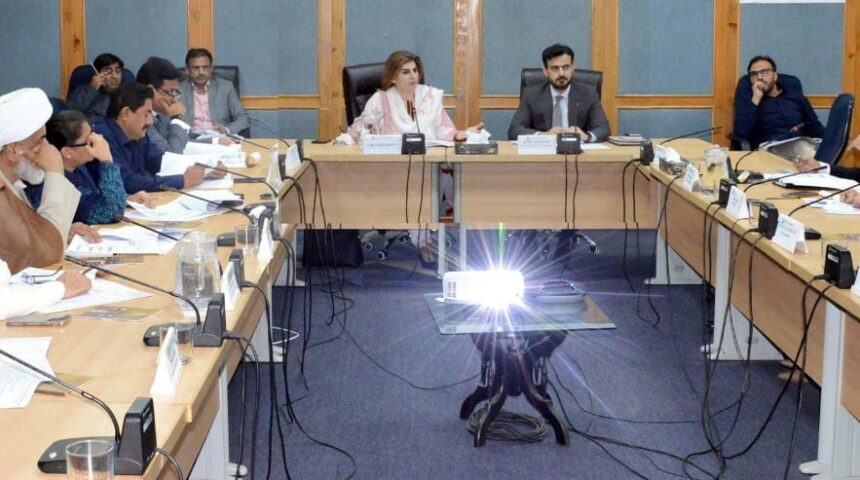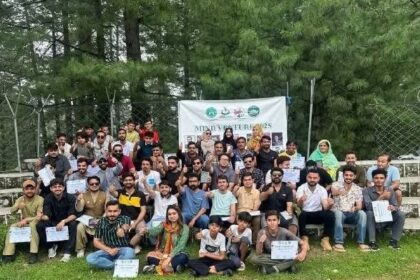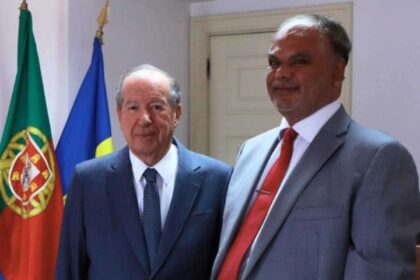The Senate Functional Committee on Human Rights convened a meeting to advance legislative and institutional safeguards for child protection, disability rights, gender equality, and cybercrime prevention in Pakistan. The session, chaired by Senator Samina Mumtaz Zehri, featured in-depth discussions on pending bills, the operational capacity of key agencies, and systemic challenges affecting the protection of vulnerable groups.
Key legislative amendments were examined, notably the National Commission on the Rights of the Child (Amendment) Bill and the ICT Rights of Persons with Disability Bill. Spearheaded by Senator Dr. Zarqa Suharwardy Taimur, the Disability Bill received particular attention, with consensus emerging around provisions for comprehensive five-yearly school surveys, the distribution of educational resources and assistive devices, scholarship schemes, and an overall focus on inclusive education. The Committee also recommended the incorporation of internationally recognized legal definitions for “mild” and “moderate” disabilities, aiming to eliminate ambiguity.
While initial apprehensions were expressed by the Ministry—citing existing legislative coverage for many proposed provisions—collaboration between committee members and government officials led to refined language and stronger enforceability in the bills. Emphasis was placed on government-led public awareness campaigns, robust regulatory oversight, and enhanced data collection capabilities. Islamabad is currently serving as a pilot site for an app designed to assist parents and compile data on children with disabilities. The legislative landscape varies across provinces, with Punjab and Sindh already having enacted relevant laws, and Khyber Pakhtunkhwa’s legislation nearing completion.
A significant portion of the meeting addressed the operational status of the National Cyber Crime Investigation Agency (NCCIA) and efforts to bolster child online protection. Lawmakers advocated for a nationwide expansion of cybercrime units, streamlined mechanisms for remote complaints, recruitment of specialized professionals, and improved collaboration among relevant agencies. Members stressed the need for proactive investigations, heightened public awareness, and dedicated psychological support for victims of online abuse. The Committee expressed concern over the low number of convictions, procedural delays, withdrawal of victim testimonies, and inadequate support systems, urging the maintenance of offender databases, mandatory background checks, and a strengthening of crisis helplines.
Gender equality and women’s participation in public life also featured prominently in the discussions. The Secretary of Human Rights pointed to Pakistan’s persistent low ranking in the World Economic Forum’s Gender Gap Report, citing factors such as outdated national data, underreporting, institutional inefficiencies, and cultural impediments. Fragmented coordination between bodies like the Higher Education Commission and UNESCO was flagged as a significant barrier to accurate reporting and effective policy execution. The Committee called for regular, transparent reporting, enhanced accountability for implementing agencies, and strict penalties for lapses.
Chairperson Senator Samina Mumtaz Zehri expressed concern over systemic delays in securing convictions, citing judicial inefficiencies and bureaucratic hurdles. She underscored the vital importance of expeditious justice delivery, warning that prolonged delays undermine victims’ rights. The senator also criticized the government for failing to present accurate data on international platforms, specifically referencing misleading information submitted during UN reviews in Geneva—especially on sensitive topics like blasphemy—which she said had repercussions for Pakistan’s global reputation. She called on the Ministry of Human Rights to prioritize factual, transparent disclosures and proactive engagement in international forums.
The meeting was attended by Senators Khalil Tahir, Poonjo Bheel, Qurat-Ul-Ain Marri, Raja Nasir Abbas, Dost Muhammad Khan, Jam Saifullah Khan, and Dr. Zarqa Suharwardy Taimur, alongside the Secretary of the Ministry of Human Rights and senior officials from related departments.











